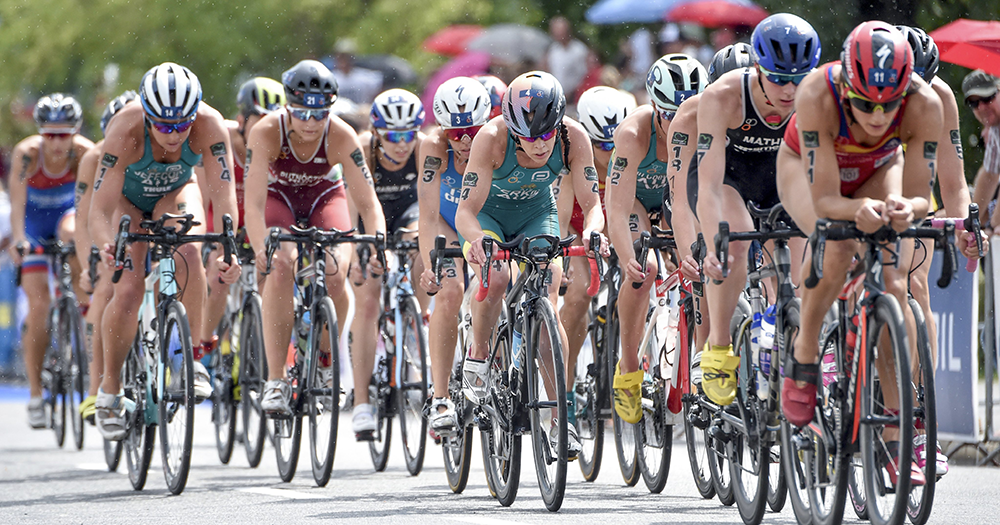World Triathlon has approved a new policy that allows Transgender women to continue competing within female categories including internationally at professional standard, or in any age-group category. However, restrictions do apply relating to hormone levels and previous sporting history.
The new regulations which come into effect in September rule that in order to participate, Trans women must demonstrate lower concentrations of testosterone continuously for at least two years, as opposed to one year which is the case now. In addition to this, they cannot have competed in male category events within any sport for the past four years, a much longer period than the one year that is currently required.
Speaking on the new policy, World Triathlon president Marisol Casado said the organisation is “prioritising the fairness principle but showing inclusiveness”.
The decision comes less than a month after British Triathlon announced a ban on Trans women racing in female competitions at all levels in the UK. The governing body instead created an “open category” for all individuals of any level over the age of 12 “including male, transgender and those non-binary who were male sex at birth”.
With World Triathlon continuing to allow Trans women to compete at an international level, this poses confusion for UK-based competitors. British Triathlon previously ruled that “only athletes who are the female sex at birth will be eligible to represent Great Britain, England, Scotland or Wales, in female competition,” and have told BBC Sport that it would need to speak to World Triathlon “to fully understand the implications” of the new policy at international level.
“This dialogue will include reference to athletes competing abroad and at UK hosted events,” a spokesperson added.
“The British Triathlon Transgender policy still stands and we have begun working on guidance for event organisers, clubs, officials and coaches, to share this autumn, before the policy comes into effect from 1 January 2023.
“This guidance will support the implementation of this policy and serve to ensure that our sport continues to develop in being welcoming, supportive and inclusive for everyone,” they continued.
Similar to British Triathlon, the Rugby Football League (RFL) and the English Rugby Football Union (RFU) also recently banned Trans women from competing in female categories. In June, Swimming’s governing body FINA voted to prevent Trans athletes from competing in women’s elite races if they have gone through any part of male puberty, and cycling’s governing body UCI also toughened its restrictions on Trans participation.
© 2022 GCN (Gay Community News). All rights reserved.
Support GCN
GCN is a free, vital resource for Ireland’s LGBTQ+ community since 1988.
GCN is a trading name of National LGBT Federation CLG, a registered charity - Charity Number: 20034580.
GCN relies on the generous support of the community and allies to sustain the crucial work that we do. Producing GCN is costly, and, in an industry which has been hugely impacted by rising costs, we need your support to help sustain and grow this vital resource.
Supporting GCN for as little as €1.99 per month will help us continue our work as Ireland’s free, independent LGBTQ+ media.
